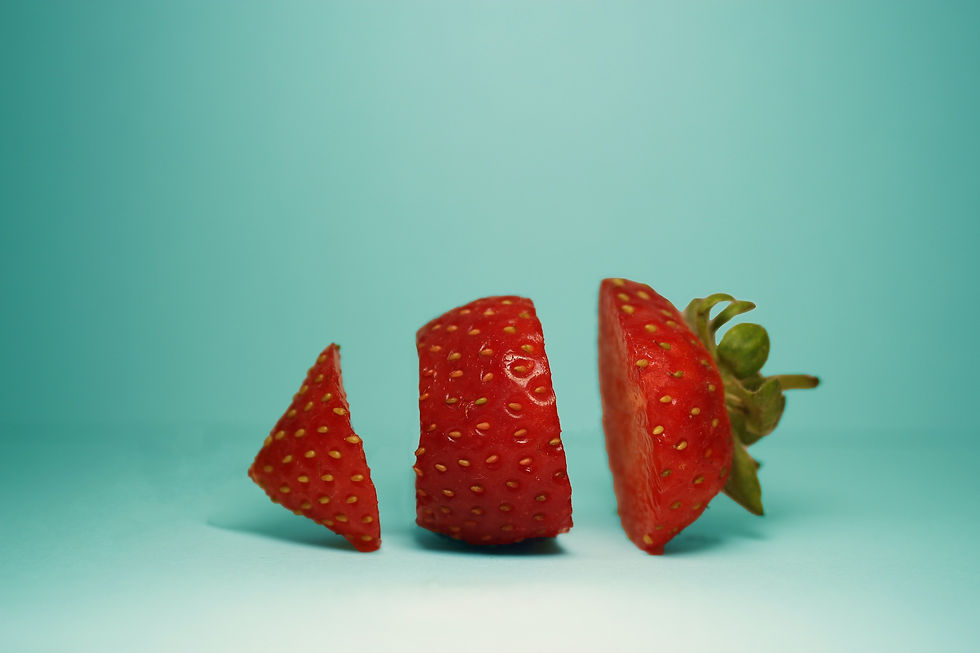Do you Suffer from Migraines? Nutrition Can Help, But isn't the End-All, Be-All
- Paige Smathers

- Dec 2, 2019
- 3 min read

Note: This blog post is not intended as a substitute for medical advice, diagnosis or treatment. Always seek and follow the advice of your medical provider. This post was written by Katie Davis, RDN and published by Paige Smathers, RDN.
Are you confused about migraine and nutrition? Have you had it with pain? You are not alone. Migraine is the 3rd most prevalent illness in the world.
It is even more prevalent than diabetes, epilepsy and asthma combined.
Migraine is more than a bad headache. It is a debilitating, neurological disease.
I have struggled with migraine disease for thirty years. A decade ago, my migraine disease progressed into chronic, daily migraine.
My balance problems associated with migraine developed in 2012. I spent two and a half years relearning to walk, sit and stand as a result of my complicated migraine disease.
I recently had a relapse in my balance problem. I am back to using a cane and walker as seen in the picture above.
If you are also suffering from migraine, you are most likely desperate to find help and relief.
The diet industry anxiously welcomes anyone trying to find a solution to migraine pain. It offers of quick fixes through dieting or eliminating this or that, and other “nutrition solutions” are readily available.
These “nutrition solutions” are contradictory. They are confusing. They do not work long-term. This leaves the migraine sufferer feeling it is their fault they are still in pain. In actuality, it is diet culture’s false promises that failed them!
I am one of a small number of dietitians who is uniquely qualified to help clients wade through confusing diet culture’s misinformation about migraine disease.
I also help clients explore if migraine food triggers might be an issue for them. While food triggers are not solely responsible for migraine, some food triggers can have an additive effect to other migraine triggers.
For example, if someone with migraine is not well rested and/or is experiencing their menstrual cycle, they may find that they are more sensitive to specific food triggers than at other times. I can help clients determine if this is an issue for them.
I take an intuitive eating approach in supporting clients as they learn to make peace with food and their bodies as they manage their disease.
I also share insights around eating regular and nourishing meals and snacks while staying hydrated— good self-care for anyone, but particularly helpful to those trying to do what they can to prevent migraine attacks.
I further guide clients through aspects of self-care and self-compassion that can contribute to their overall well-being as they manage pain.
However, food and nutrition are not the end-all solution for migraine. Not only does food not have that kind of power, but migraine disease itself is complicated. Often there are a multitude of factors that underlie someone’s migraine disease.
That is why it is vital to see a certified headache specialist that can work in conjunction with a registered dietitian like myself and other healthcare providers to provide you with the best possible care.
Medical treatments for migraine can include but are not limited to: daily preventative medication, rescue medications to take at the immediate onset of migraine attack, new CGRP treatments, nerve blocks, IV therapy and neuromodulation devices.
Migraine sufferers also report help from other supportive treatments such as restorative yoga, counseling, massage, support groups and self-care.
Your pain, your triggers and your treatment are unique and individual to you. Your migraine pain is also not your fault.
If you would like help navigating nutrition and migraine related concerns for yourself, your child or loved one, I am currently accepting clients locally in Salt Lake City, Utah or virtually.
I also see clients with eating disorders and help families with feeding dynamics.
You can set up an appointment here. You may also contact me at katie@positive-nutrition.com or (385) 831 -1709.
MORE INFORMATION:
References:
Migraine Research Foundation: http://migraineresearchfoundation.org/about-migraine/migraine-triggers/..
The Migraine Trust: https://www.migrainetrust.org/about-migraine/migraine-what-is-it/facts-figures/
Headache: The Journal of Head and Face Pain Volume 56, Issue 9 Headache Currents Diet and Headache: Part 1. Vincent T. Martin MD Brinder Vij MD First published: 04 October 2016. Available at: https://onlinelibrary.wiley.com/doi/abs/10.1111/head.12953.
National headache foundation website. Available at: https://headaches.org/2016/11/15/research-shows-diet-impacts-migraine-two-ways/.
Journal of Pain Research, Volume 11: June 28, 2018.. Dietary trigger factors of migraine and tension-type headache in a South East Asian country. Authors Tai MLS, Yap JF, Goh Published 28 June 2018 Volume 2018:11 Pages 1255—1261. Available at: https://www.dovepress.com/dietary-trigger-factors-of-migraine-and-tension-type-headache-in-a-sou-peer-reviewed-article-JPR.
Headaches and food article from Cleveland clinic website: available at https://my.clevelandclinic.org/health/articles/9648-headaches-and-food.
National Headache Foundation website. Available at: https://headaches.org/2012/01/13/headache-sufferers-diet/







Kaiser OTC benefits provide members with discounts on over-the-counter medications, vitamins, and health essentials, promoting better health management and cost-effective wellness solutions.
Obituaries near me help you find recent death notices, providing information about funeral services, memorials, and tributes for loved ones in your area.
is traveluro legit? Many users have had mixed experiences with the platform, so it's important to read reviews and verify deals before booking.